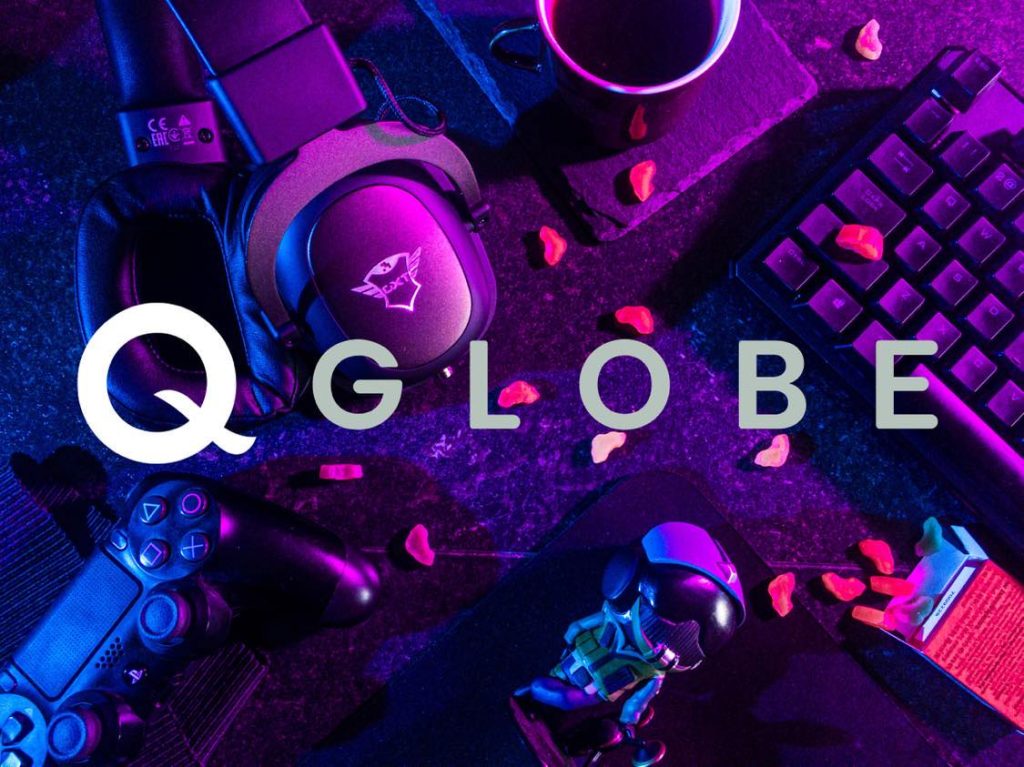
Web3 gaming is already here, and it’s making its way into the mainstream at an impressive pace. The rise of blockchain technology and the concept of decentralization have paved the way for a new era of gaming, where players have more control and ownership over their in-game assets. With the growing popularity of cryptocurrencies and the increasing interest in the metaverse, Web3 gaming is poised to revolutionize the gaming industry as we know it. Here’s what you are missing and how QGlobe Games provides utility to the ecosystem.
The world of Web3 gaming is rapidly expanding, and several notable companies are making significant strides in this space. Mythical Games, for instance, has achieved remarkable success with their app NFL Rivals, which has secured a spot among the top 10 apps on the Apple App Store. What sets them apart is their integration of blockchain technology, with certain cards in the game being connected to the blockchain, allowing for true ownership and rarity. Meanwhile, Paradise Tycoon, another Web3 game, has amassed an impressive user base with over 250,000 downloads. The influence of Web3 gaming has even reached renowned companies like Epic Games, who are actively involved in building their presence in the metaverse. Similarly, RTFKT, a popular digital fashion brand, is partnering with Nike to develop a video game, showcasing the convergence of fashion and gaming in the Web3 era. Additionally, even established games like Eve Online are embracing the potential of Web3, as they work on building a new game within the Web3 ecosystem. These examples highlight the growing influence and excitement surrounding Web3 gaming as it continues to push boundaries and reshape the gaming industry.
Web3 gaming combines the power of blockchain technology with gaming, creating a decentralized ecosystem where players can truly own and trade their virtual assets. Unlike traditional gaming, where players often spend money on in-game purchases without any real ownership, Web3 gaming allows players to buy, sell, and trade virtual items using cryptocurrencies. These assets are stored on the blockchain, ensuring transparency, security, and true ownership.One of the key features of Web3 gaming is the concept of play-to-earn. In traditional gaming, players spend hours grinding and completing tasks to earn in-game rewards, which are often limited to that specific game.
However, with Web3 gaming, players can earn valuable cryptocurrencies and assets that can be used across multiple games and platforms. This has opened up new opportunities for gamers to monetize their skills and time spent playing games, turning gaming into a potentially lucrative endeavor. NFTs, or non-fungible tokens, play a significant role in the Web3 gaming ecosystem. These unique digital assets can represent anything from in-game items and characters to virtual real estate and artwork. By utilizing blockchain technology, NFTs ensure that each asset is verifiable, scarce, and cannot be duplicated or manipulated. This has created a thriving marketplace for gamers to buy, sell, and trade their virtual assets, with some rare items selling for millions of dollars.
Furthermore, Web3 gaming has introduced the concept of player governance and community-driven decision-making. Decentralized autonomous organizations (DAOs) allow players to have a say in the development, management, and future of the games they play. By holding governance tokens, players can participate in voting and influence decisions regarding game updates, asset distributions, and even revenue sharing. This level of community engagement and ownership has fostered a stronger bond between developers and players, leading to more player-centric experiences. The integration of Web3 gaming into the mainstream has been accelerated by the emergence of metaverse platforms. Metaverses are virtual worlds where players can explore, socialize, and engage in various activities. QGlobe has recently launched a groundbreaking social finance app that caters to the live streaming tournament scene. With this innovative platform, users can seamlessly stream and watch tournaments while also enjoying an effortless “watch and buy” e-commerce feature. This feature particularly benefits influencers who can leverage their popularity by selling both physical and digital items directly from their in-app merchandise store. QGlobe’s app provides a convenient and streamlined experience, allowing users to engage with their favorite influencers and make purchases effortlessly. This integration of live streaming, social finance, and e-commerce opens up new possibilities for content creators and fans to connect, interact, and support each other in the world of live tournaments.
These immersive environments are built on blockchain technology, allowing for seamless asset interoperability and cross-platform compatibility. Metaverse platforms have gained significant attention from both gamers and investors, with major companies investing billions of dollars in developing their own metaverse ecosystems.Large gaming companies are also recognizing the potential of Web3 gaming and are beginning to embrace the trend. They are exploring partnerships with blockchain and cryptocurrency companies to incorporate Web3 features into their existing games or develop new games specifically designed for the Web3 ecosystem.
This convergence of traditional gaming giants and the decentralized Web3 world is a clear sign that Web3 gaming is well on its way to mainstream adoption.In conclusion, Web3 gaming is already here, and it’s quickly making its mark on the mainstream. With its promise of true asset ownership, play-to-earn opportunities, NFT marketplaces, player governance, and metaverse platforms, Web3 gaming has captured the attention of both gamers and investors alike. As more players experience the benefits and possibilities of Web3 gaming, we can expect it to reshape the gaming industry, creating a more inclusive, transparent, and immersive gaming experience for everyone.
